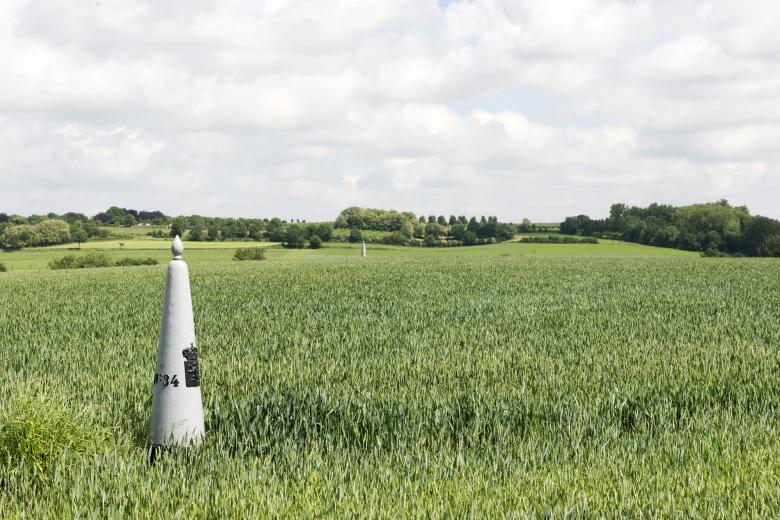Energy transition in border regions hindered by lack of coordination
A lack of coordinated arrangements between neighbouring countries is making it extremely difficult to realise a successful energy transition in the German-Dutch border regions. Although border municipalities would like to work together, there has so far been an acute lack of cross-border cooperation in the field of sustainable power generation due to the complexity of uncoordinated regulations. The first obstacle is a lack of a common vision for spatial planning in border areas. Existing subsidy schemes are also inadequately coordinated, and public consultation among citizens from a neighbouring country is virtually impossible. These are the findings of the annual Cross-border Impact Assessment by the ITEM expertise centre (part of Maastricht University), which has been presented today at a conference in Groningen.
Energy transition
For the impact assessment, the researchers looked at the effects of current legal, spatial and economic frameworks on cross-border cooperation in relation to the energy transition. Many border regions are lagging behind in meeting obligations in the field of sustainable energy. This is partly due to a lack of coordination between governments on either side of the border. Although for years European directives on renewable energy have given member states the option to harmonise their subsidy schemes, the Dutch, German and Belgian governments have not made use of this possibility. ‘This makes it almost impossible to realise true cross-border projects, such as wind farms with turbines on either side of the border,’ says ITEM researcher Martin Unfried. ‘This would require special border regulations.’
Cross-border coordination
Another major problem is finding suitable locations for wind or solar farms. There is no common vision or cross-border spatial planning to coordinate the search for sites on either side of the border. This sometimes leads to incidents in which border residents are dissatisfied with power generation projects in the neighbouring municipality. According to the researchers, the lack of cross-border public consultation could even have negative consequences for good relations between neighbouring municipalities in the near future. As yet, there is also no suitable legal framework to stimulate cross-border energy cooperatives. Martin Unfried’s research builds on a recent study by law professors Lea Diestelmeier and Martha Roggenkamp at the University of Groningen. They point out that the involvement of citizens’ energy cooperatives, or ‘energy communities’, will require better agreements on the use of the energy system, the distribution of profits and the possibilities for cross-border cooperation.
Conference
The presentation of the annual Cross-border Impact Assessment traditionally takes place at the ITEM annual conference, which this year will be held on Friday 18 November at the provincial government building in Groningen. During the annual conference, participants share experiences to support security, healthcare and energy supplies in border regions. The aim is to create a permanent cross-border structure in which a variety of subjects can be put on the agenda for analysis, and actually produce results.
The Institute for Transnational and Euregional cross border cooperation and Mobility (ITEM) is part of Maastricht University. This year’s Cross-Border Impact Assessment considers not only the effects of the energy transition in border regions, but also issues such as the ban on consumer fireworks in the Netherlands. All research files can be downloaded here.
Also read
-
Broad prosperity is still a blind spot in the border region
In their current election campaigns, almost all political parties stress that ‘every region matters’. Party manifestos are full of plans to promote broad prosperity in all regions of the Netherlands. Broad prosperity comprises not only material wealth, but also well-being, including issues such as...
-
Citizens’ initiative advocates the introduction of electronic detention as punishment
To reduce the imposition of short prison sentences in the Netherlands, experts are arguing for the inclusion of electronic detention in the Criminal Code as a possible punishment. A partnership led by Maastricht University and the Dutch Foundation for Restorative Justice is submitting a so-called...
-
Little attention paid to cooperation with neighbouring countries in lead-up to elections in border provinces
The topic of cross-border cooperation plays only a modest role in the party manifestos for the upcoming provincial elections, even in border provinces. This is one of the findings of a thematic analysis by researchers from ITEM, Maastricht University’s transnational expertise centre.